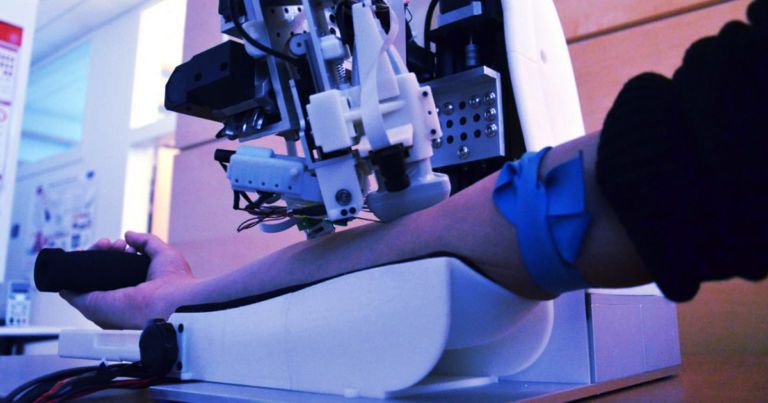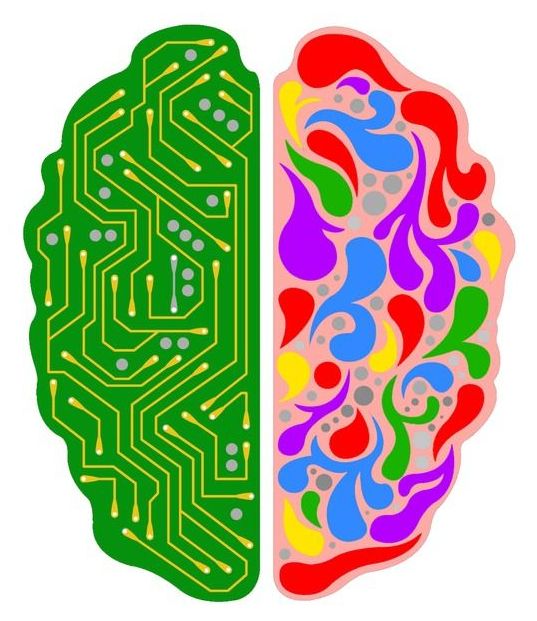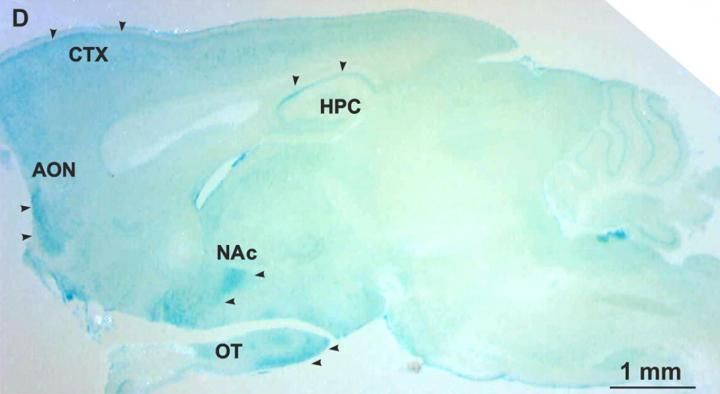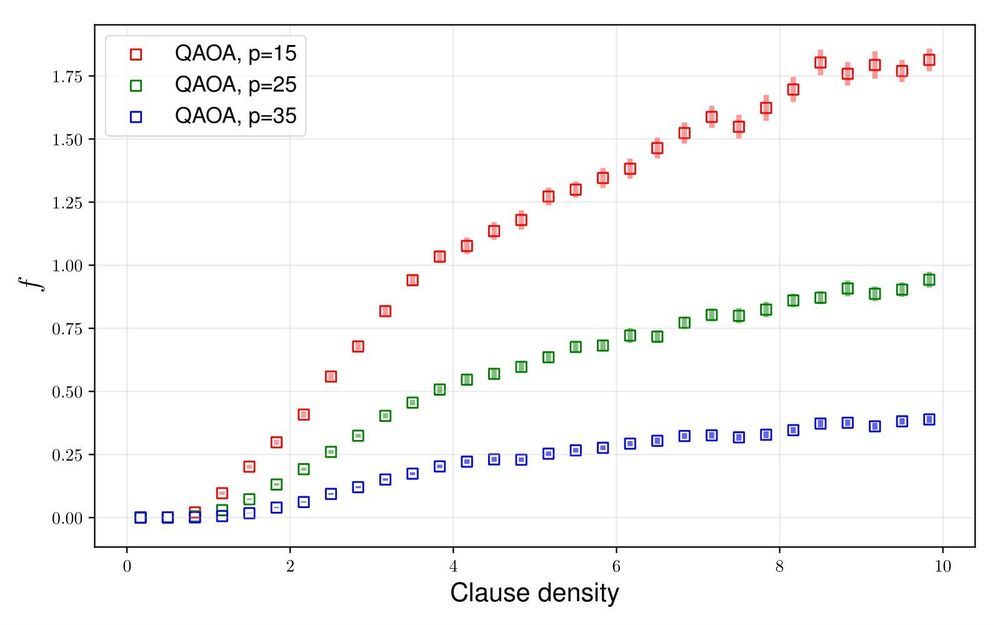Page 7566
Mar 7, 2020
How do human beings co-live with AI in the future?
Posted by Neurozo Huang in categories: innovation, robotics/AI
How do human beings co-live with #AI in the #future? https://bit.ly/39BkOXe “Artificial intelligence (AI) has triggered many concerns and discussions in recent years, and through these discussions people are prompted to introspect on what it really means to be a human being …” #technology #innovation
Artificial intelligence (AI) has triggered many concerns and discussions in recent years, and through these discussions people are prompted to introspect on what it really means to be a human being. It provides us with plenty of food for thought regarding our science, society, family, work, etc., and all of these raise an important inquiry: how is life going to be with artificial intelligence being around us?
Mar 7, 2020
Rocket issue delays launch of UAE’s Falcon Eye 2 satellite for a month: report
Posted by Genevieve Klien in categories: military, satellites
A sharp-eyed satellite’s launch has been pushed back from its expected Thursday (March 5) launch date until no earlier than April due to a rocket problem, according to a media report.
Arianespace, which will be providing the launch from French Guiana, has not disclosed a reason for the delay. Nor did it release a new launch date for Falcon Eye 2, which is a high-performance optical observation satellite for commercial and military users in the United Arab Emirates.
Mar 7, 2020
Researchers discover a previously unappreciated neurotransmitter system in the brain
Posted by Genevieve Klien in categories: biotech/medical, neuroscience
Within this system, the transmission of signals between neurons in the brain occurs via the trace amine-associated receptor 5 (TAAR5). The results of the study will allow the development of new types of drugs for depression, schizophrenia and anxiety disorders.
Mar 6, 2020
Treatment of Neuroterrorism
Posted by Quinn Sena in categories: biotech/medical, military, terrorism
 Bioterrorism is defined as the intentional use of biological, chemical, nuclear, or radiological agents to cause disease, death, or environmental damage. Early recognition of a bioterrorist attack is of utmost importance to minimize casualties and initiate appropriate therapy. The range of agents that could potentially be used as weapons is wide, however, only a few of these agents have all the characteristics making them ideal for that purpose. Many of the chemical and biological weapons can cause neurological symptoms and damage the nervous system in varying degrees. Therefore, preparedness among neurologists is important. The main challenge is to be cognizant of the clinical syndromes and to be able to differentiate diseases caused by bioterrorism from naturally occurring disorders. This review provides an overview of the biological and chemical warfare agents, with a focus on neurological manifestation and an approach to treatment from a perspective of neurological critical care.
Bioterrorism is defined as the intentional use of biological, chemical, nuclear, or radiological agents to cause disease, death, or environmental damage. Early recognition of a bioterrorist attack is of utmost importance to minimize casualties and initiate appropriate therapy. The range of agents that could potentially be used as weapons is wide, however, only a few of these agents have all the characteristics making them ideal for that purpose. Many of the chemical and biological weapons can cause neurological symptoms and damage the nervous system in varying degrees. Therefore, preparedness among neurologists is important. The main challenge is to be cognizant of the clinical syndromes and to be able to differentiate diseases caused by bioterrorism from naturally occurring disorders. This review provides an overview of the biological and chemical warfare agents, with a focus on neurological manifestation and an approach to treatment from a perspective of neurological critical care.
The online version of this article (doi:10.1007/s13311-011‑0097-2) contains supplementary material, which is available to authorized users.
Keywords: Neuroterrorism, Bioterrorism, Warfare Agents.
Mar 6, 2020
Halo: Master Chief Collection’s New Update Is Huge On Xbox One
Posted by Quinn Sena in category: space
Mar 6, 2020
Scientists break Google’s quantum algorithm
Posted by Quinn Sena in categories: information science, quantum physics
Google is racing to develop quantum-enhanced processors that use quantum mechanical effects to increase the speed at which data can be processed. In the near term, Google has devised new quantum-enhanced algorithms that operate in the presence of realistic noise. The so-called quantum approximate optimisation algorithm, or QAOA for short, is the cornerstone of a modern drive toward noise-tolerant quantum-enhanced algorithm development.
The celebrated approach taken by Google in QAOA has sparked vast commercial interest and ignited a global research community to explore novel applications. Yet, little is known about the ultimate performance limitations of Google’s QAOA algorithm.
A team of scientists from Skoltech’s Deep Quantum Laboratory took up this contemporary challenge. The all-Skoltech team led by Prof. Jacob Biamonte discovered and quantified what appears to be a fundamental limitation in the widely adopted approach initiated by Google.
Mar 6, 2020
Watch This Guy Catch a Laser Beam With His Bare Hands
Posted by Quinn Sena in category: futurism

YouTuber Tom Scott has a new video where he stands in front of a laser and stops it in midair. “Can this burn me?” he asks the guest expert at one point. (The answer is just, “Yeah.”)
Mar 6, 2020
Scientists think they’ve finally figured out dark matter
Posted by Quinn Sena in categories: cosmology, particle physics
When astronomers gaze into space they can see many different things. Galaxies, stars, and even black holes can be spotted from our place here on Earth. However, one of the most abundant types of matter in the universe can’t actually be seen at all, or at least we’ve yet to invent the means to do so.
Dark matter may account for over three-quarters of all matter in the universe, but it can’t be observed directly. Instead, scientists have to infer its existence based on how other objects in the cosmos react to its gravity. But what is it, and will we ever be able to explain its origins? A new study by researchers at the University of York attempts to do just that, offering a potential explanation for what dark matter really is.
The researchers say that the secret of dark matter may rest in a type of particle called a d-star hexaquark. As SciTechDaily notes, it’s a particle made up of six quarks, which are the tiny bits that make up protons and neutrons, but because of their arrangement in a d-star, they are more versatile.
Mar 6, 2020
One billion Android devices at risk of hacking
Posted by Quinn Sena in categories: cybercrime/malcode, mobile phones
Watchdog Which? wants Google to be more transparent about security updates for old phones.
















